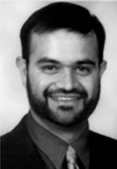An advocate for social justice and equity, Dr. Cajee’s goal in public policy has been to deepen the links between health and human rights. Residing in California’s Central Valley, Dr. Cajee’s current areas of interest and advocacy include the relationship of development and community health status as well as addressing health and education disparities at the local level. During his fellowship year, Dr. Cajee’s principal interest centered on school readiness and oral health in California, examining how dental disease, low educational achievement, and other systemic issues can intersect to diminish opportunity and equity for children. Dr. Cajee’s commitment to addressing issues of racial and ethnic health disparities can best be exhibited by his active involvement in many community and international health projects in California, Oklahoma, and South Africa. He is also involved in increasing the participation of California’s Muslim communities — primarily African-American and immigrant — in indigenous and mainstream philanthropy. Additionally, he has consulted with Physicians for Human Rights on juvenile asylum-seekers. He has published articles on issues related to dentistry, public health, human rights, peace and justice, and cultural competence.
Born and raised in South Africa, Dr. Cajee received his dental degree from the University of Oklahoma College of Dentistry in 2000. He received a Master’s in Public Health from the Harvard School Public Health in 2003 as a California Endowment Scholar.
The California Endowment Scholars in Health Policy at Harvard University was a sister program to the Commonwealth Fund Fellowship. Beginning in 2002 and discontinued in 2011, it was a one-year, full-time, academic degree-granting program designed to create health professional leaders in the public, nonprofit, and academic sectors.


